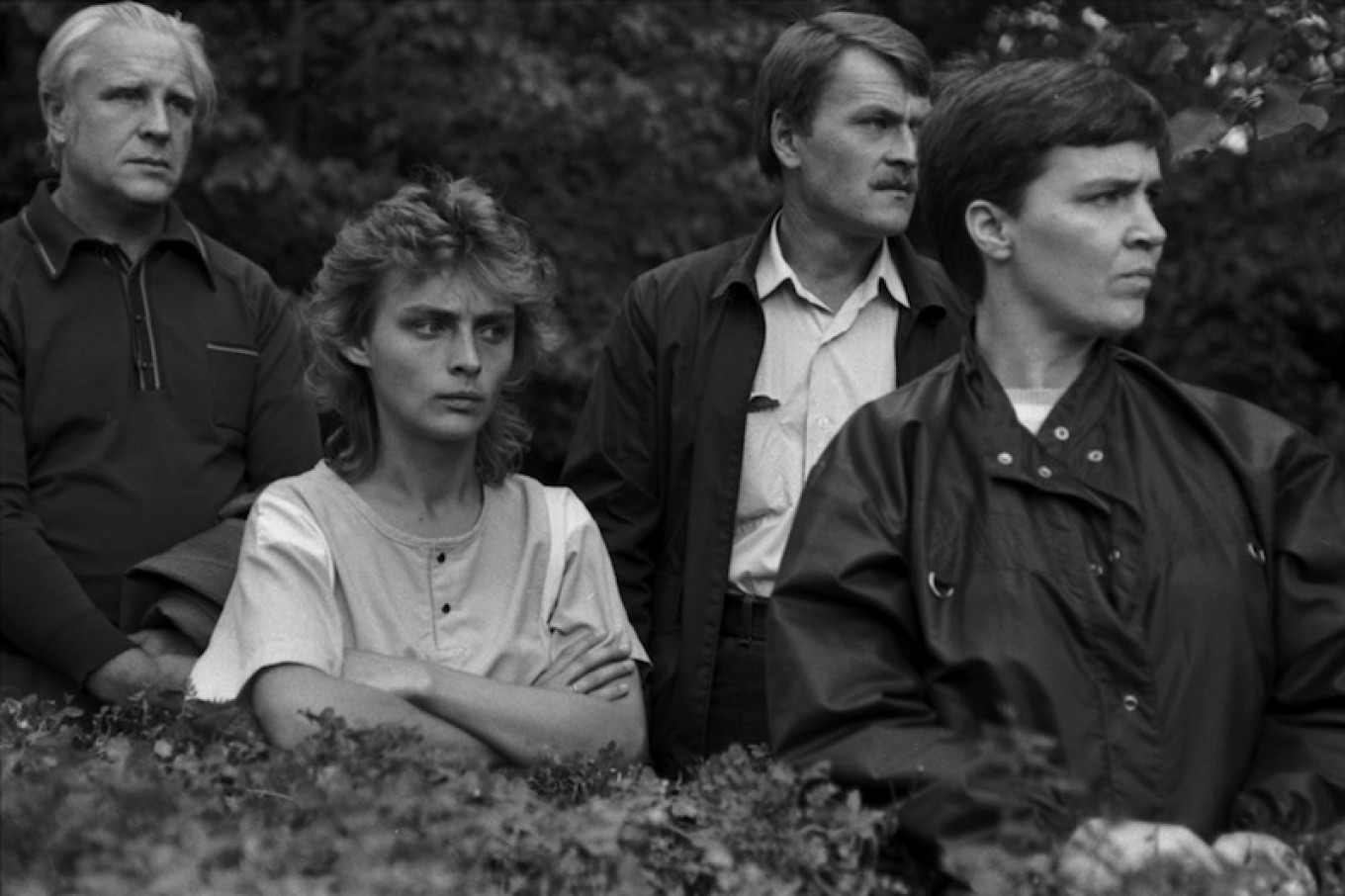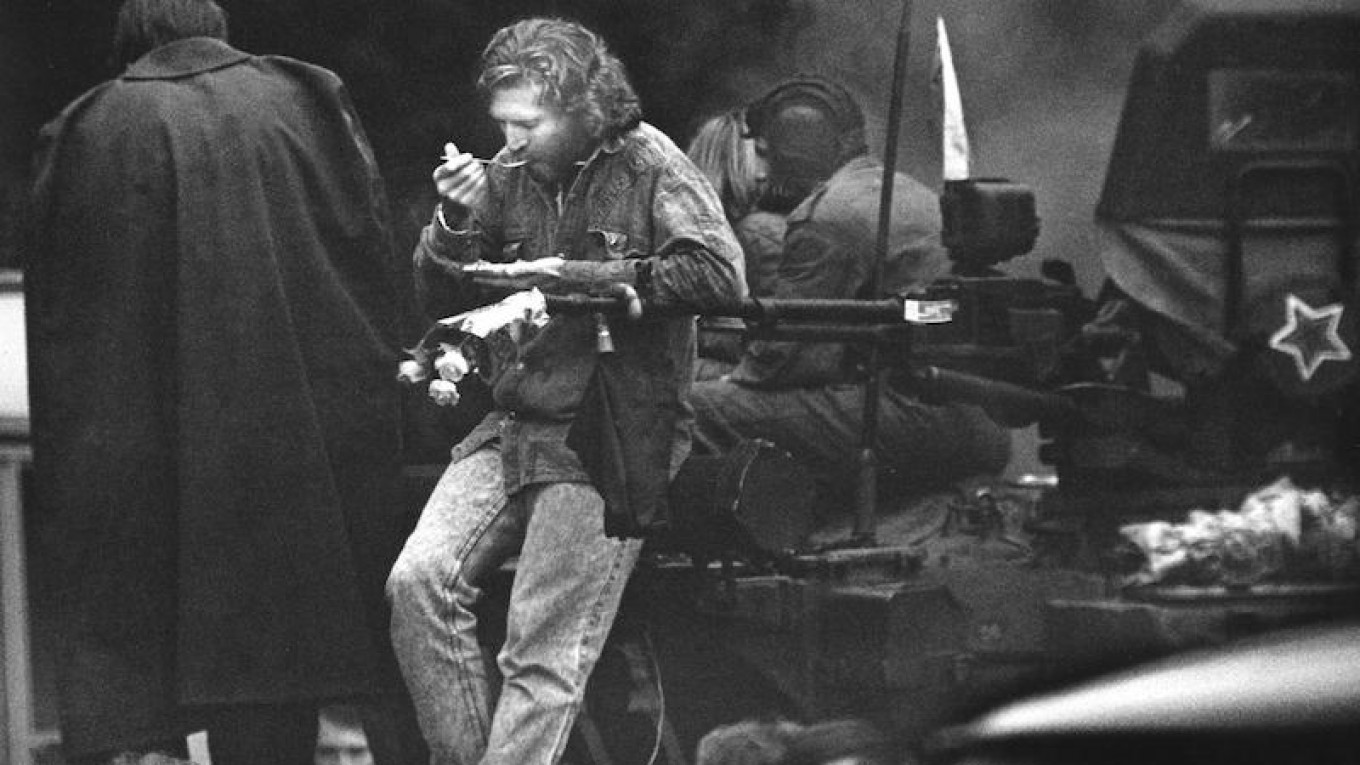On the morning of Aug. 19, 1991, Muscovites woke to the sight of tanks in the street. On television, normal programming was replaced by an unexpected showing of “Swan Lake,” while Ekho Moskvy, the only independent radio station, was cut off the air. It was the start of a failed coup by hard-line members of the Communist Party of the Soviet Union to seize power from Mikhail Gorbachev. This dramatic episode is now immortalized in a new exhibition at the Museum of Moscow, which aims give a human face to the historic events.
“August 1991. Muscovites Remember” combines photojournalism, first person narrative and documentary film to offer a panoramic perspective on the events during and following the attempted coup. Opened on the 25th anniversary of the unsuccessful putsch, the exhibition anchors ordinary Muscovites in the extraordinary circumstances in which they found themselves.
"The Museum of Moscow shows the events of August 1991 through the prism of human emotions, relationships and recorded memories. The phenomenon of the putsch appears here as an episode of the urban community’s collective memory,” Alina Saprykina, the director of the Museum of Moscow, told The Moscow Times.
The list of photojournalists who contributed to the project includes some of the most illustrious individuals to have emerged from the field in the last 50 years: Gueorgui Pinkhassov, famed for his art-reportage shots, Igor Mukhin, widely considered to be one of Russia’s greatest contemporary photographers, and Yury Lizunov, whose photograph of Mikhail Gorbachev and his family returning from Crimea won the 1992 World Press Photo contest in the category “People in the News.”
Other photographers involved in the project include Mikhail Dashevsky, Alexander Zemlyanichenko, Sergei Leontyev, Valery Shchekoldin and Igor Gavrilov.
A Cultural Legacy
Walking through the exhibition you see the events of August 1991 unfold before your eyes: thousands of people gathering around the Russian White House, young men hoisting themselves onto the statue of KGB Founder Felix Dzerzhinsky just before it was toppled and a woman defiantly holding hands with her neighbors to create a human chain against tanks approaching the White House.
The exhibition, though relatively small in scale, is a poignant reminder of the unprecedented, spontaneous mass reaction against the putsch. Perhaps it is particularly important this year, the first time Moscow City Hall refused activists permission to hold a remembrance rally outside the White House. “It’s surprising that these events which were so remarkable for our country are so little documented or remembered,” said Igor Gavrilov, one of the exhibition’s contributing photographers, at the exhibition’s opening.
“What you see in the exhibition are photographs that are both a document of a specific time, and artworks— they are part of a cultural legacy,” said Yevgenia Kikodze, who curated the exhibition with Irina Chmyreva. This is certainly true of Mikhail Dashevsky’s striking black and white photography “Stop,” which captures the crowds descending on the statue of Felix Dzerzhinsky under a “stop” traffic sign.
The contributing photographers were themselves witnesses to the failed coup. Like the rest of the population, they were caught off guard by the speed of the events unfolding. Alexander Zemlyanichenko, a Russian photojournalist, had a ticket to Cyprus for a family vacation for Aug. 19. But after a phone call from a friend, he sent his wife and son off to the airport, rushed to the center and began photographing events.
“Those two days seemed to me to be endless—it was as if I worked day and night for a week. And then there was victory, and fireworks over Red Square and great joy. I didn’t think about prizes or awards, I just worked.” To this day he says that people joke that he swapped his holiday for his first Pulitzer photography prize.

A Front Row Seat to History
At the heart of the exhibition are the experiences of citizens as they witnessed history being made. To document this, the museum invited students from the Institute of Professional and Amateur Photography to take to the streets and ask Muscovites where they were on Aug. 19, 1991 and what they remembered.
“It was important to us that we had the reflections of ordinary Muscovites in the exhibition, because of course living through events such as these has an emotional impact on you,” said Yevgenia Kikodze.
The Museum of Moscow has chosen to present these interviews in a simple format: Visitors see a large-scale photo of the individual and the location in Moscow where the interview took place. You can then listen to each individual answer a few simple questions about that day. Memories range from venturing out onto the streets to waiting for news by radios and televisions.
Yelena, now 36, was nine at the time of the coup. “I was with my grandmother. I remember that ‘Swan Lake’ was on television all of that day and that it was very surprising because we were waiting for ‘Santa Barbara’ [An American television soap opera].”
“August 1991. Muscovites Remember” is a rare exhibition. It is about thousands of ordinary people who peacefully resisted the coup and the photographers who documented them.
As photographer Valery Shchekoldin said, “It was a good time. I’m sorry that it ended so quickly.”
“August 1991. Muscovites Remember” runs through Sept. 23 at the Museum of Moscow. 2 Zubovsky Bulvar. Metro Park
Kultury. mosmuseum.ru
A Message from The Moscow Times:
Dear readers,
We are facing unprecedented challenges. Russia's Prosecutor General's Office has designated The Moscow Times as an "undesirable" organization, criminalizing our work and putting our staff at risk of prosecution. This follows our earlier unjust labeling as a "foreign agent."
These actions are direct attempts to silence independent journalism in Russia. The authorities claim our work "discredits the decisions of the Russian leadership." We see things differently: we strive to provide accurate, unbiased reporting on Russia.
We, the journalists of The Moscow Times, refuse to be silenced. But to continue our work, we need your help.
Your support, no matter how small, makes a world of difference. If you can, please support us monthly starting from just $2. It's quick to set up, and every contribution makes a significant impact.
By supporting The Moscow Times, you're defending open, independent journalism in the face of repression. Thank you for standing with us.
Remind me later.






